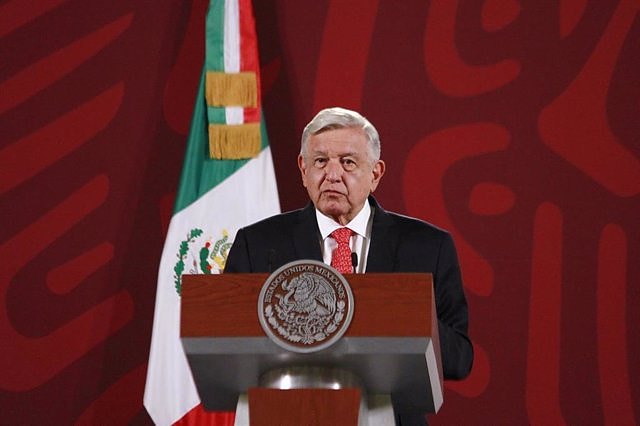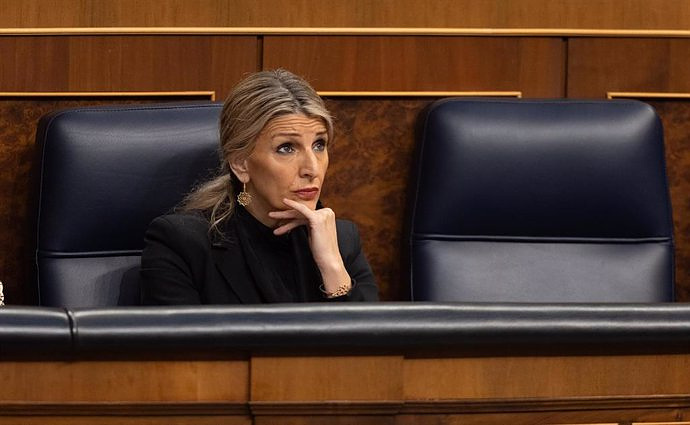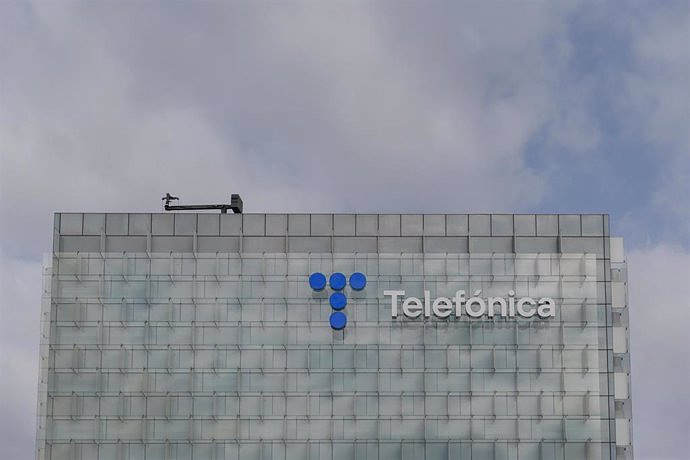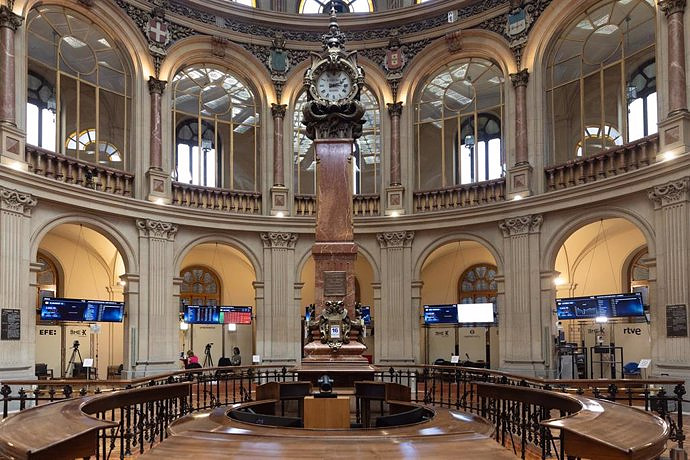MADRID, 6 Dic. (EUROPA PRESS) -
The NGO Human Right Watch (HRW) has warned this Tuesday that the Mexican government's proposal to modify the country's Constitution to reform the country's electoral system could "seriously" undermine the independence of the electoral authorities, putting free and fair elections at risk .
Mexican President Andrés Manuel López Obrador's proposal would remove many of the safeguards intended to preserve the independence of the two national authorities charged with the task of supervising all elections, the National Electoral Institute (INE) and the Tribunal Electoral of the Judicial Power of the Federation (TEPJF), according to the organization.
Congress is expected to discuss and vote on the proposal before the end of the current legislative session on December 15, 2022.
"President López Obrador's proposed changes to the electoral system would make it much easier for any party in power to co-opt the country's electoral institutions to stay in power," said Tyler Mattiace, HRW's Mexico researcher.
"Given Mexico's long history of one-party rule maintained through questionable elections, it is extremely problematic for lawmakers to consider a highly regressive proposal that would undermine the independence of the electoral authority," Mattiace added.
Under López Obrador's proposal, all state electoral institutes and state electoral tribunals, the independent authorities that administer most state and local elections and enforce campaign rules as well as resolve electoral disputes, would be eliminated.
Their responsibilities would be transferred to the INE and the TEPJF, which would become the sole arbitrators of all elections in Mexico.
The proposal would also change the way governing members of the National Electoral Institute and the Federal Electoral Tribunal are appointed, removing safeguards intended to ensure their independence from the government.
The proposal would shorten and unify the terms of the members so that all the ruling members of both electoral authorities would be appointed at the same time, in the same process, during each six-year presidential term. Currently, these officials serve staggered nine-year terms and are appointed in separate selection processes by different officials in different years, as detailed by the NGO.
"Reducing the number of authorities responsible for administering elections and making it possible to appoint all electoral officials at once would make it much easier for the government to influence the selection process, which could undermine the independence of electoral authorities," the statement said. released by Human Right Watch.
For the organization, Mexico's current electoral system, which includes "many safeguards to protect the independence of electoral authorities," is the result of decades of reforms that began with the creation of INE in 1990 and led to the end of party rule. unique in 2000.
For much of the 20th century, one political party controlled almost all of Mexico's public institutions. The government organized periodic elections, which were generally not considered free or fair, and almost always held power.
The president's proposal would also remove the constitutional mandate for the National Electoral Institute, instead of the government, to manage the electoral registry as well as the official list of registered voters.
"The possibility that the electoral registry could be transferred to government control could contravene Mexican law and international norms for the protection of personal data. These standards prohibit organizations that have personal information, such as names, photos and fingerprints, from sharing that information without the express permission of the people whose data might be transferred," HRW added.
"Each country is obliged, under international law, to protect the right of citizens to vote and participate in the conduct of public affairs by ensuring that there is an independent electoral authority that can supervise elections fairly and impartially," it warned. the organization in his letter.

 Exploring Cardano: Inner Workings and Advantages of this Cryptocurrency
Exploring Cardano: Inner Workings and Advantages of this Cryptocurrency Seville.- Economy.- Innova.- STSA inaugurates its new painting and sealing hangar in San Pablo, for 18 million
Seville.- Economy.- Innova.- STSA inaugurates its new painting and sealing hangar in San Pablo, for 18 million Innova.- More than 300 volunteers join the Andalucía Compromiso Digital network in one month to facilitate access to ICT
Innova.- More than 300 volunteers join the Andalucía Compromiso Digital network in one month to facilitate access to ICT Innova.-AMP.- Ayesa acquires 51% of Sadiel, which will create new technological engineering products and expand markets
Innova.-AMP.- Ayesa acquires 51% of Sadiel, which will create new technological engineering products and expand markets The European Parliament supports the new fiscal rules adapted to the situation by country
The European Parliament supports the new fiscal rules adapted to the situation by country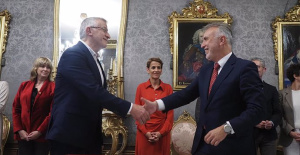 Agreement between the Government and Navarra to protect traffic competition in the community after the annulment of the Supreme Court
Agreement between the Government and Navarra to protect traffic competition in the community after the annulment of the Supreme Court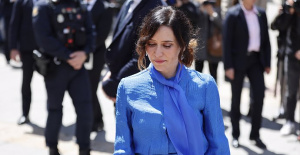 Ayuso's partner proposed to the Prosecutor's Office to accept 8 months in prison and pay more than half a million euros to avoid trial
Ayuso's partner proposed to the Prosecutor's Office to accept 8 months in prison and pay more than half a million euros to avoid trial Enerside closes the sale to Chint of a 400 MW photovoltaic and storage project in Italy
Enerside closes the sale to Chint of a 400 MW photovoltaic and storage project in Italy How Blockchain in being used to shape the future
How Blockchain in being used to shape the future Not just BTC and ETH: Here Are Some More Interesting Coins Worth Focusing on
Not just BTC and ETH: Here Are Some More Interesting Coins Worth Focusing on Looking for video games that value the neighborhoods of Valencia
Looking for video games that value the neighborhoods of Valencia UPV researchers improve the efficiency of air conditioning systems using a geothermal heat pump
UPV researchers improve the efficiency of air conditioning systems using a geothermal heat pump València is committed to citiverse and smart tourism to be "the reference technological hub of the Mediterranean"
València is committed to citiverse and smart tourism to be "the reference technological hub of the Mediterranean" Valencia displays its "innovative and technological potential" at the Emerge Americas event in Miami
Valencia displays its "innovative and technological potential" at the Emerge Americas event in Miami A million people demonstrate in France against Macron's pension reform
A million people demonstrate in France against Macron's pension reform Russia launches several missiles against "critical infrastructure" in the city of Zaporizhia
Russia launches several missiles against "critical infrastructure" in the city of Zaporizhia A "procession" remembers the dead of the Calabria shipwreck as bodies continue to wash up on the shore
A "procession" remembers the dead of the Calabria shipwreck as bodies continue to wash up on the shore Prison sentences handed down for three prominent Hong Kong pro-democracy activists
Prison sentences handed down for three prominent Hong Kong pro-democracy activists ETH continues to leave trading platforms, Ethereum balance on exchanges lowest in 3 years
ETH continues to leave trading platforms, Ethereum balance on exchanges lowest in 3 years Investors invest $450 million in Consensys, Ethereum incubator now valued at $7 billion
Investors invest $450 million in Consensys, Ethereum incubator now valued at $7 billion Alchemy Integrates Ethereum L2 Product Starknet to Enhance Web3 Scalability at a Price 100x Lower Than L1 Fees
Alchemy Integrates Ethereum L2 Product Starknet to Enhance Web3 Scalability at a Price 100x Lower Than L1 Fees Mining Report: Bitcoin's Electricity Consumption Declines by 25% in Q1 2022
Mining Report: Bitcoin's Electricity Consumption Declines by 25% in Q1 2022 Oil-to-Bitcoin Mining Firm Crusoe Energy Systems Raised $505 Million
Oil-to-Bitcoin Mining Firm Crusoe Energy Systems Raised $505 Million Microbt reveals the latest Bitcoin mining rigs -- Machines produce up to 126 TH/s with custom 5nm chip design
Microbt reveals the latest Bitcoin mining rigs -- Machines produce up to 126 TH/s with custom 5nm chip design Bitcoin's Mining Difficulty Hits a Lifetime High, With More Than 90% of BTC Supply Issued
Bitcoin's Mining Difficulty Hits a Lifetime High, With More Than 90% of BTC Supply Issued The Biggest Movers are Near, EOS, and RUNE during Friday's Selloff
The Biggest Movers are Near, EOS, and RUNE during Friday's Selloff Global Markets Spooked by a Hawkish Fed and Covid, Stocks and Crypto Gain After Musk Buys Twitter
Global Markets Spooked by a Hawkish Fed and Covid, Stocks and Crypto Gain After Musk Buys Twitter Bitso to offset carbon emissions from the Trading Platform's ERC20, ETH, and BTC Transactions
Bitso to offset carbon emissions from the Trading Platform's ERC20, ETH, and BTC Transactions Draftkings Announces 2022 College Hoops NFT Selection for March Madness
Draftkings Announces 2022 College Hoops NFT Selection for March Madness